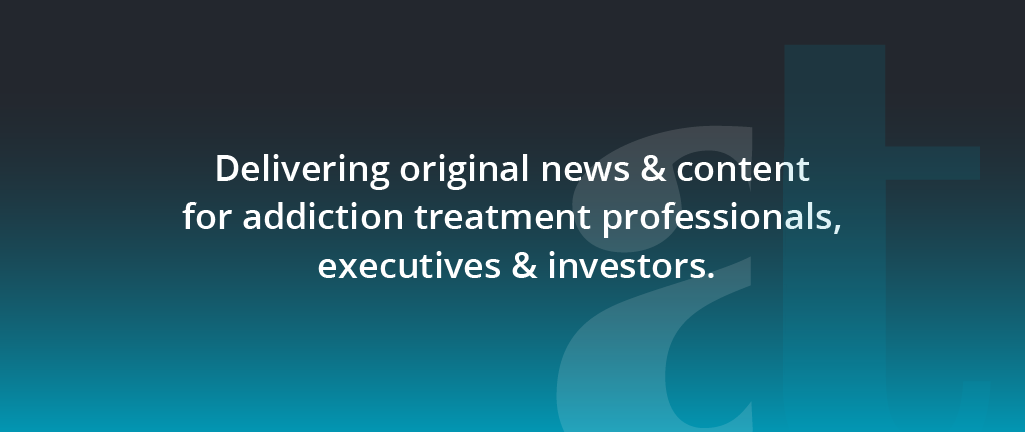For years, University of Michigan alumni Robin McIntosh and Lisa McLaughlin, both in long-term recovery from a substance use disorder (SUD), observed the challenges in America’s broken addiction treatment system.
Then, in 2015, fueled by a desire for a low-stigma, accessible solution, they founded Workit Health, a virtual SUD treatment provider.
“Going through the experience of losing a few loved ones really inspired them to say, ‘We are the people going through this. We’re the patients as designers. We have a better idea of how this care can be delivered,’” Workit Health Chief Operating Officer Kate Monti said of the company’s founders.
Facing a limited understanding of its model during the first few years, the Ann Arbor, Michigan-based company focused on vision and market fit while raising its initial seed funding in 2016, Monti told Addiction Treatment Business.
“[McIntosh and McLaughlin] set out to build this sort of recovery-in-your-pocket-type model, and they were really focused on building a new world and new access in that way,” she said.
Initially emphasizing community building and “substance wellness,” or the idea of working on one’s relationship with substances, Workit’s “lightweight solution” revealed shortcomings amid the intensifying opioid crisis in late 2016 into 2017, Monti said.
This inspired the company to prioritize a more robust care delivery model, including medication prescribing, to address rural access issues for individuals with opioid use disorder (OUD).
Over time, strengthening its clinical services has enabled Workit to deliver a wider spectrum of care, Monti said.
“We’re trying to create a system that really works for patients versus making our patients work for the system,” she said.
Coinciding with the COVID-19 pandemic, Workit raised $12 million in Series B funding in 2020 as demand for digital treatment services soared. This, coupled with pandemic-fueled regulatory changes, allowed Workit to scale and care for more people.
“I’m not a huge believer in fate or things happening for a reason, but I continue to find myself so grateful for Workit being in the right place at the right time,” Monti told ATB.
In 2021, Workit raised $118 million in Series C funding.
Self-described as a “whole-person medical home for addiction care,” Workit doesn’t merely assist members with SUD but addresses co-occurring conditions as well, such as anxiety and depression. The company also offers therapeutic interventions and peer-led groups.
“We wrap ourselves around the whole patient,” Monti said.
Workit stresses a member-centered design ethos, treating over 12,000 members from the start of 2023 through last November, with health plans covering nearly all services, Monti said.
She added that the company’s focus on robust clinical outcomes in 2023 resulted in increased reporting in the form of studies and other publications, including one highlighting a three-month retention rate of 62% (compared to the industry’s 50%) and a 99% treatment adherence rate.
“We are big believers in measurement-based care and outcomes, and we think that in general, the behavioral health space doesn’t do enough to hold itself accountable to good outcomes and measurement of the treatment that they’re delivering,” Monti said.
Workit’s commitment to sustainable growth positions it to reach profitability in 2024, Monti said.
Despite these strides, Workit also faced challenges in recent months, laying off 100 employees due to a proposed Drug Enforcement Administration (DEA) reversal of controlled substance prescribing via telehealth.
Those proposed regulations, including ones at the state level, have been postponed or extended until the end of 2024.
While positive overall, surging acceptance of telehealth programs has also revealed some challenges, Monti said, requiring “a necessary balance of the space trying to define how telehealth is going to exist in the world at scale.”
Looking forward, Workit plans to deepen relationships with health plans and enhance community offerings within the app to create more meaningful and enriched interactions, Monti told ATB.
Speaking about the addiction treatment space more generally, Monti said she anticipates a broader focus on different SUD types in 2024, such as stimulant use disorder, and innovative solutions for adolescents.
“We’re really internally trying to make sure that we’re building good, scalable frameworks that keep [sustainability and accountability] at the center of what we do alongside the members,” she said.



